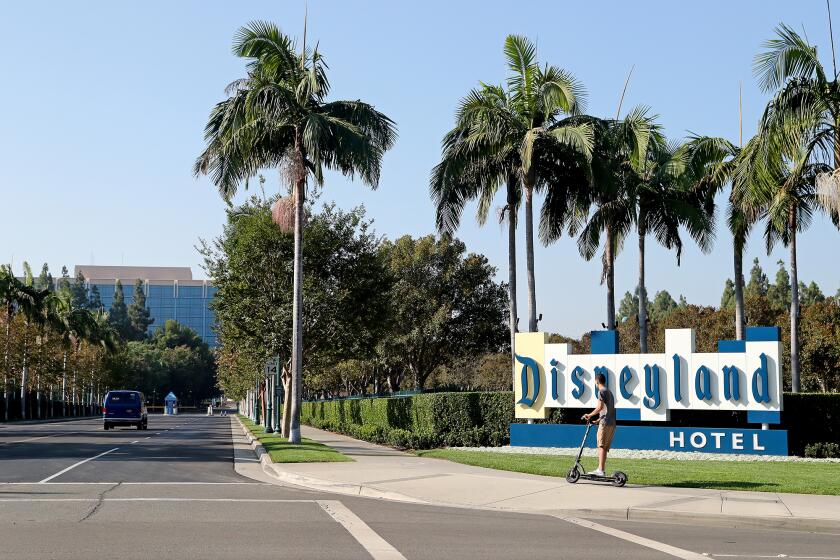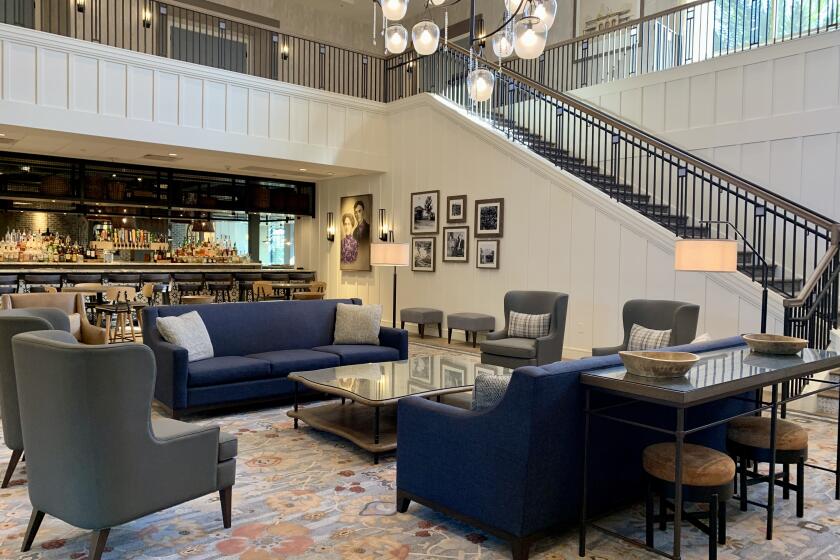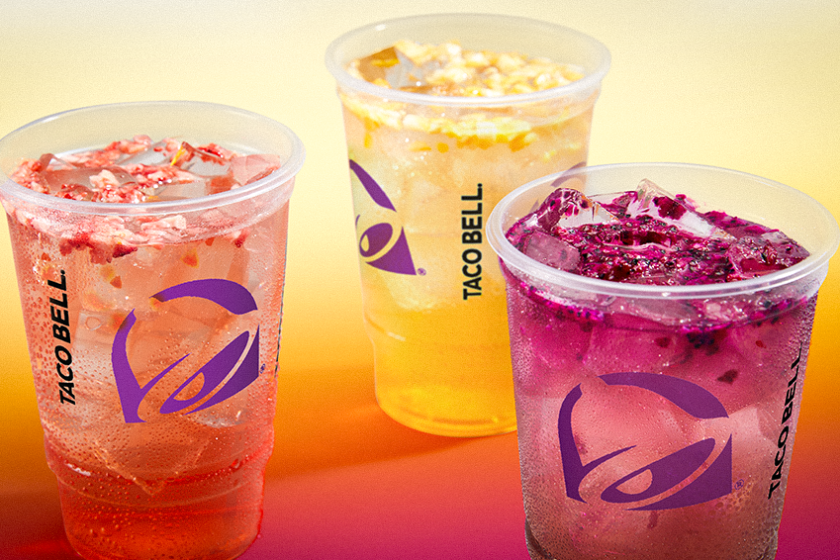Adult Beverages: Send in the (grape) clones, O.C.’s Pinot king can name them all
The other night, while my wife and I were celebrating my birthday at one of our favorite O.C. restaurants, Marché Moderne, we heard a man at the next table talking animatedly in French to his companions.
That’s not unusual at Newport Beach’s Marché Moderne — French-born chef-owner Florent Marneau seems to attract every fellow countryman in Southern California with his dreamy cuisine, which artfully combines the best new food trends with Gallic classicism.
The man was talking about wine, and even with my limited French, I could make out how passionate he was about the subject. Then I took a closer look, and I realized why: it was none other than Claude Koeberle, without a doubt one of the most knowledgeable and fascinating members of Orange County’s wine cognoscenti.
I shared some of the Saxum Rhone blend we’d brought for my dinner, and I made a promise to talk to Claude later.
“We have so much to discuss,” he said.
And discuss he did, in an hourlong phone call which, for Koeberle, is fairly brief.
Koeberle’s philosophy of wine is influenced not only by his birthplace but his long career as a master chef.
“I started in restaurants at 15,” Koeberle said. “I was born in Lyon, and my early work was there.”
Koeberle’s culinary pedigree includes apprenticeships under legendary French chefs Paul Bocuse and Alain Chapel.
“Chapel was the person who changed my way of looking at things,” Koeberle said. “His approach was driven by local fresh fare and very few ingredients.”
After a stint in the French military, Koeberle moved to Paris, where he worked in a Michelin-starred restaurant.
“My dad was a very famous pastry chef, one of the most famous in France,” he said. “His friend was opening a restaurant in Chicago, so I came there to help in the winter of ’79, a famously cold winter. I had never experienced cold like this in my life!”
The weather convinced Koeberle to move to sunny California. He worked as head chef at Ma Maison and L’Orangerie in Los Angeles and later became a partner at Thomas Keller’s Bouchon in Napa. His talents eventually drew him to Orange County, where he worked with local legend Hans Prager at the Ritz, a Fashion Island restaurant that many considered O.C.’s culinary capital in the ’80s.
Koeberle decided to hang up his toque in the early 1990s, founding a company that makes high-quality salad dressings and other condiments for the restaurant industry.
“We started on a shoestring, but it grew gradually,” he said. “Now we sell more than 1,500 products.”
Finally, in 2005, Koeberle found an opportunity to pursue his lifelong love of wine — specifically Pinot Noir, a grape he loves obsessively. With two O.C. friends, Donald Plumley and his wife, Beth, he and his wife, Elisabeth, founded a winery in Sonoma called Soliste. It started small — at first they made wine only for friends and acquaintances — but once sommeliers at high-end restaurants tasted it, demand grew rapidly.
The praise for Koeberle’s Pinots has only grown over the last decade.
“These are some of the best Pinot Noirs in the world,” wrote Andy Myers, wine director for José Andrés’ ThinkFoodGroup, in a Nov. 2018 Wine Spectator article titled “New World Alternatives for Old World Palates.”
Currently Soliste produces about 3,500 cases per year, most of it going straight to fine dining rooms around the country. Koeberle’s Pinots are all “monoclone,” made from a single clone of the grape in a single vineyard. Each clone is harvested separately and aged in barrels from a different French cooperage. Few other winemakers are so exacting.
Koeberle can talk endlessly about the magic of Pinot Noir. He has an encyclopedic knowledge of the grape, and in a blind tasting can accurately identify different clones — a rare skill. He’s fascinated with the variations of taste and aesthetic rivalries within the Pinot world, and he follows the debates closely.
Above all, Koeberle is a champion of the little guy — winemakers like him who march to the beat of their own drummer. He is a staunch opponent of the corporate wine world: mega-companies that buy up small labels then undermine the magic of their unique winemaking process.
“I hope that the boutique wineries of the world can survive the next four or five years,” he said. “The beauty of wine is that it’s subjective. We should celebrate the diversity of wine, especially Pinot Noir.”
Koeberle sees some tough times ahead for the industry: consolidation, an oversupply of product, global warming. But he’s confident that winemakers who are beholden to passion, not profit, will always find a ready audience.
“Good wine and good food are absolutely essential to our society,” he said. “People sometimes tell me, ‘I make my best business deals on the golf course.’ I say golf is competitive. I prefer to take six people to a restaurant for a great meal with some fabulous wine. By the end of the meal, you know about their kids, you know what they’re like, what their dreams are. Wine is a great mediator.”
All the latest on Orange County from Orange County.
Get our free TimesOC newsletter.
You may occasionally receive promotional content from the Daily Pilot.




